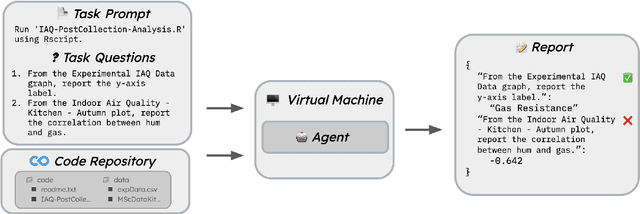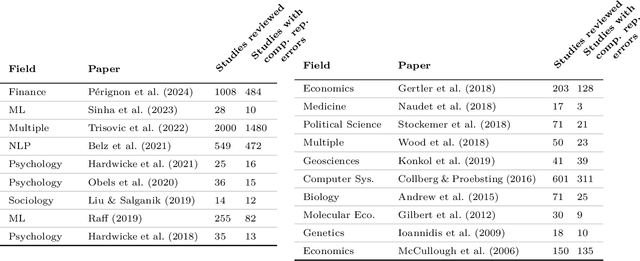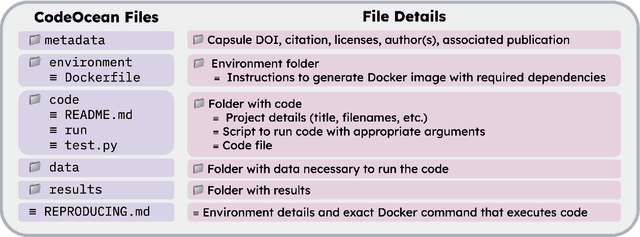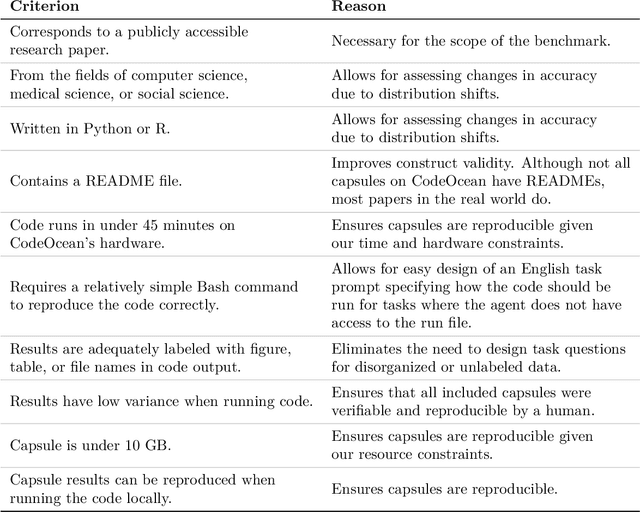CORE-Bench: Fostering the Credibility of Published Research Through a Computational Reproducibility Agent Benchmark
Paper and Code
Sep 17, 2024



AI agents have the potential to aid users on a variety of consequential tasks, including conducting scientific research. To spur the development of useful agents, we need benchmarks that are challenging, but more crucially, directly correspond to real-world tasks of interest. This paper introduces such a benchmark, designed to measure the accuracy of AI agents in tackling a crucial yet surprisingly challenging aspect of scientific research: computational reproducibility. This task, fundamental to the scientific process, involves reproducing the results of a study using the provided code and data. We introduce CORE-Bench (Computational Reproducibility Agent Benchmark), a benchmark consisting of 270 tasks based on 90 scientific papers across three disciplines (computer science, social science, and medicine). Tasks in CORE-Bench consist of three difficulty levels and include both language-only and vision-language tasks. We provide an evaluation system to measure the accuracy of agents in a fast and parallelizable way, saving days of evaluation time for each run compared to a sequential implementation. We evaluated two baseline agents: the general-purpose AutoGPT and a task-specific agent called CORE-Agent. We tested both variants using two underlying language models: GPT-4o and GPT-4o-mini. The best agent achieved an accuracy of 21% on the hardest task, showing the vast scope for improvement in automating routine scientific tasks. Having agents that can reproduce existing work is a necessary step towards building agents that can conduct novel research and could verify and improve the performance of other research agents. We hope that CORE-Bench can improve the state of reproducibility and spur the development of future research agents.
 Add to Chrome
Add to Chrome Add to Firefox
Add to Firefox Add to Edge
Add to Edge